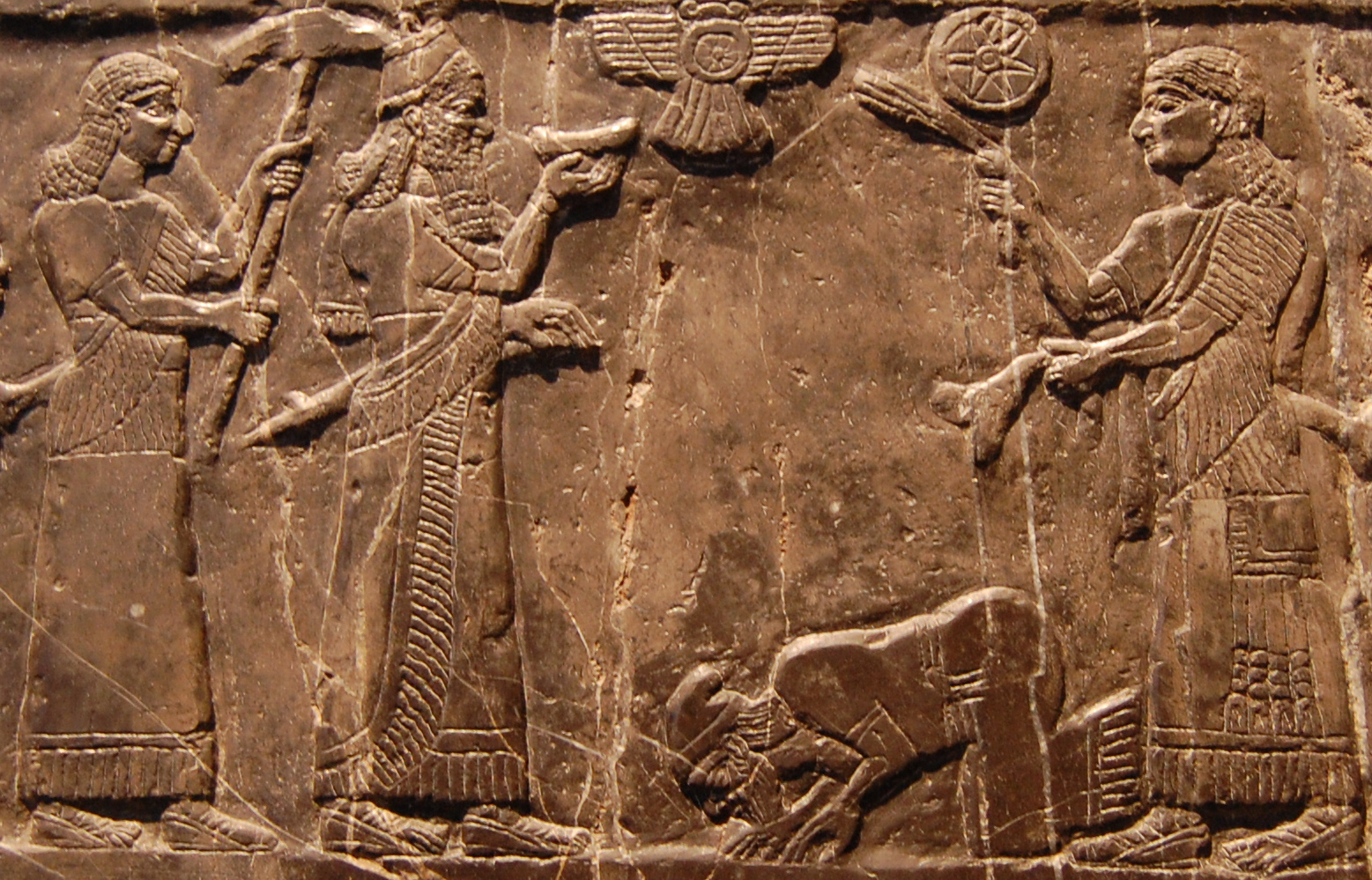Hosea’s Kindergarten Disaster and the Bloodshed of Jezreel
The names of the children of the prophet Hosea surely raised eyebrows in the Hebrew kindergartens of ancient Israel. God told Hosea to name the first child Jezreel, which means “May God sow” or “God will scatter.” The name could either be a blessing or a curse depending on how one looked at it. Furthermore, the Jezreel valley was notoriously known as a location of much fighting and bloodshed (1 Samuel 29:1-2 Samuel 2:8, 1 Kings 21:1, 2 Kings 9:24ff).
One child with a strange symbolic name was not enough. Hosea’s second child was given the name Lo-Ruhamah, meaning “Not loved” or “Unloved.” Can you imagine the awkwardness during roll call when that name came up? “Is ‘unloved’ here?”
For Hosea’s third child, God told Hosea name him Lo-Ammi, which means “Not my people.” Each of these names were rather shocking to the Israelites. Most importantly, they were symbolic names to represent God’s broken relationship with the rebellious people of Israel.
Why Was Hosea Told to Name His First Child Jezreel?
Although the overall symbolism of the three names seems relatively clear (Hosea was instructed by God to declare Israel’s sin and their broken covenant relationship), some of the details are puzzling. For example, Hosea 1:4 has a phrase which confuses a lot of people. It reads as follows:
“And the LORD said to him, ‘Name him Jezreel; for yet a little while, and I will punish the house of Jehu for the bloodshed of Jezreel, and I will put an end to the kingdom of the house of Israel.'”
Hosea 1:4
This verse seems to indicate that Jehu’s family (the Northern Kingdom’s last dynasty) would be punished because of the bloodshed at Jezreel. The only possible reference appears to be 2 Kings 9:24–10:17, where at Jezreel, Jehu kills Joram, Ahaziah, Jezebel, and Ahab’s descendants to purge Israel of Baal worship.
A Potential Discrepancy between Hosea 1:4 and 2 Kings 10:30
Comparing the details in Hosea 1:4 and 2 Kings 10:30 seems to highlight a tension. In Hosea 1:4 the stated reason for punishment is “the bloodshed of Jezreel.” But 2 Kings 10:30 seems to indicate God was pleased by the bloodshed that happened. It reads this way:
“The LORD said to Jehu, ‘Because you have done well in executing what is right in My eyes, and have done to the house of Ahab according to all that was in My heart, your sons of the fourth generation shall sit on the throne of Israel.'”
2 Kings 10:30
2 Kings 10:30 seems to indicate that the Lord is pleased with Jehu’s violent actions in killing the idolatrous kings of Israel and eradicating Baal worship. So why does Hosea 1:4 indicate that Jehu’s family will be punished “for the bloodshed of Jezreel” when 2 Kings 10:30 seems to approve of those actions?

Translating “For the Bloodshed of Jezreel”
Most English Bible translations convey a similar meaning for the key phrase in Hosea 1:4 about the “bloodshed of Jezreel.” For example:
NASB: “for the bloodshed of Jezreel”
NIV: “on account of the bloodshed in the valley of Jezreel”
ESV: “for the blood of Jezreel”
However, in the original Hebrew, the phrase reads: וּפָקַדְתִּי אֶת־דְּמֵי יִזְרְעֶאל עַל־בֵּית יֵהוּא. This more precisely translates to, “I will visit/bring the blood of Jezreel upon the house of Jehu.”
This phrasing leads to an interpretive issue. Does “the blood of Jezreel” refer to Jehu’s wrongful actions there? Or does it refer to the outcome or consequences of Jehu’s slaughter at Jezreel coming upon his descendants?
A Plausible Interpretation that Fits with 2 Kings 10:30
The more likely interpretation, in my view, is that “the blood of Jezreel” refers to the same violent fate that befell the evil kings Jehu slaughtered. In other words, the bloodshed that Jehu accomplished in obedience to God at Jezreel in purging evil (as God approved in 2 Kings 10:30) will now happen to Jehu’s own wicked family line. They failed to learn from that historical lesson and continued in iniquity. Therefore God would punish them with the bloodshed similar to what they caused at Jezreel.
This interpretation is picked up by the HCSB and LSB translations:
“Then the LORD said to him: Name him Jezreel, for in a little while I will bring the bloodshed of Jezreel on the house of Jehu and put an end to the kingdom of the house of Israel.” (HCSB)
“And Yahweh said to him, “Name him Jezreel; for yet a little while, and I will visit the bloodshed of Jezreel upon the house of Jehu, and I will cause the kingdom of the house of Israel to cease.” (LSB)
So what does all this have to do with Hosea’s son being named Jezreel? Hosea’s son Jezreel was named not as indictment of Jehu’s actions, but as a prophetic sign that Jehu’s descendants would suffer violence and the end of their dynasty—just as Jehu’s bloody purge at Jezreel had eliminated the house of Ahab.
This understanding seems to be the most straightforward understanding of the grammar and context of Hosea 1:4. It takes into account God’s positive evaluation of Jehu’s purge (2 Kings 10:30) while also explaining the coming judgment on Jehu’s unrighteous household through the symbolic name Jezreel. Yes, Hosea’s kids had a rough time in kindergarten. But their names were powerful prophetic signposts indicating what God was going to do to Israel.
One Comment
Graeme Waller
Hello,
Hos 1 was part of my Bible study/reading today, and Hos 1:4 (bloodshed of Jezreel) left me rather puzzled because the Jezreel event (2Ki 9:14-10:11) was in God’s will. This explanation, backed up by some translations, really helped.
Thanks for sharing. God bless you.
Graeme